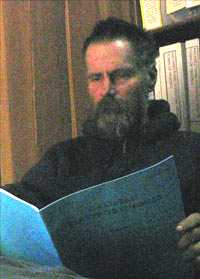Gyroscopic Paradox of Motion: Validation of Mach's Principle?
Year: 2011 Pages: 4
A discussion of angular momentum conservation in the context of the long-standing controversy over Absolute vs. Relative space raises doubts on the consistency of an aspect of Newtonian mechanics in situations involving compound rotational dynamics. Historical review of such problems, those noted by Laithwaite in particular, introduces the issue: A paradox arises in situations in which precessing gyroscopes revolve at the respective ?poles' of a spherical gravitating body, or are mounted in the framework of an accelerating system. Difficulties in conformance to the classical law of angular momentum conservation are encountered. A resolution is presented, theoretically possible within Newtonian mechanics; but such resolution raises further questions regarding both the quantification of centrifugal force, and of gyroscopic torque, in the precessional motion of generalized rigid bodies. Meticulous analysis of the problem, with close attention to Centrifugal, Coriolis and Eulerian torques on mass elements, results in a dilemma for the mechanics of rotation: either the axis of rotation does not necessarily pass through the center of mass of a system but perambulates about it due to a deficit of centrifugal force, or classical angular momentum is not always conserved but is upset by wayward gyroscopic torque. A theoretical design is presented in which internal angular momentum may increase indefinitely. The phenomena suggest adoption of a Machian-style interaction to preserve the laws of motion; however, potential difficulties in conforming such a solution to the inertia tensor are presented. A curious correspondence with Meno's gyron theory is also described.


